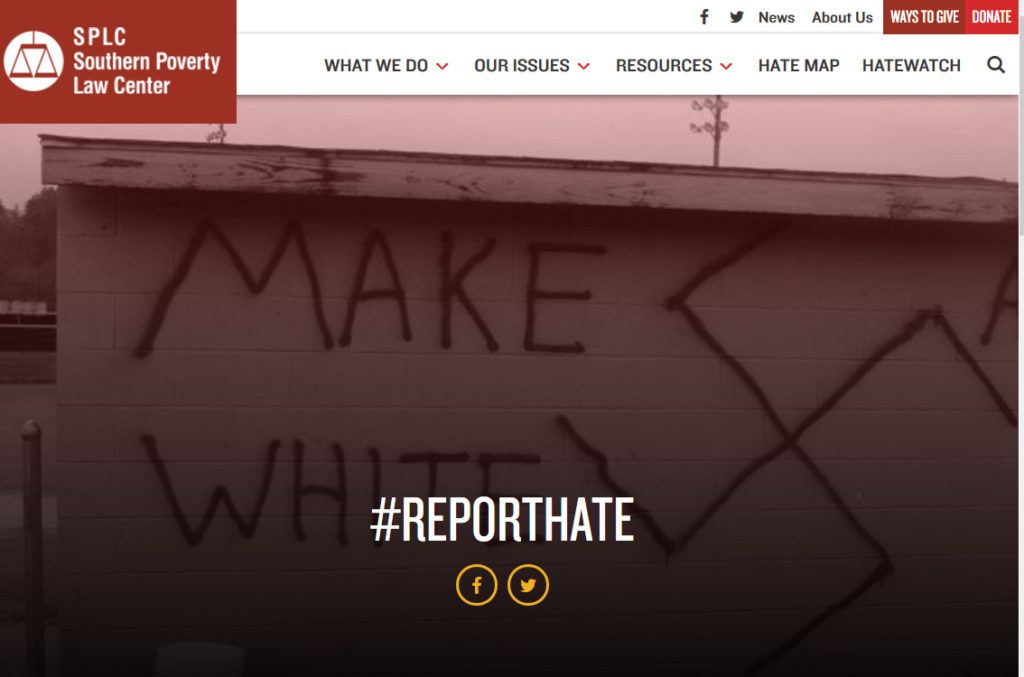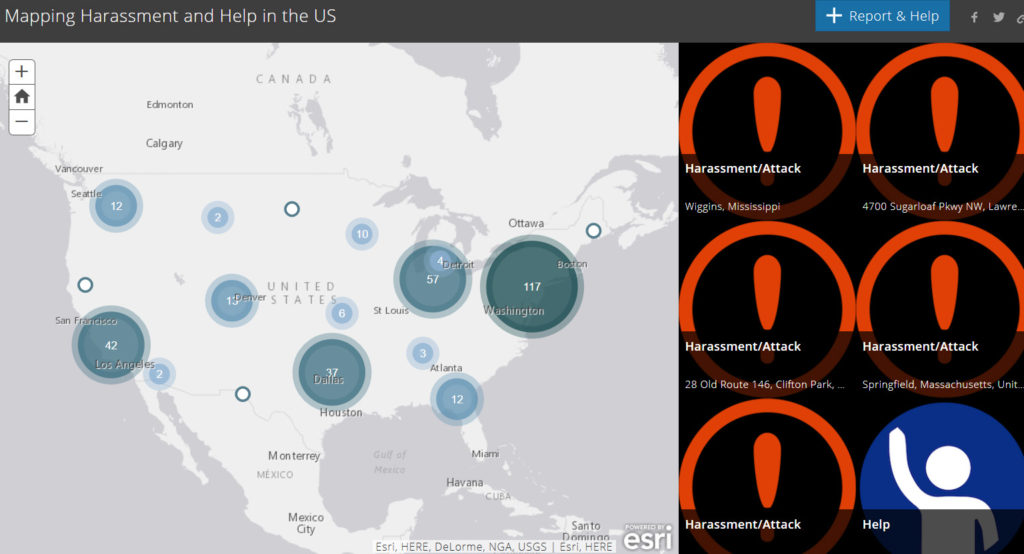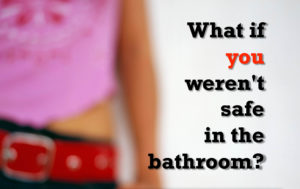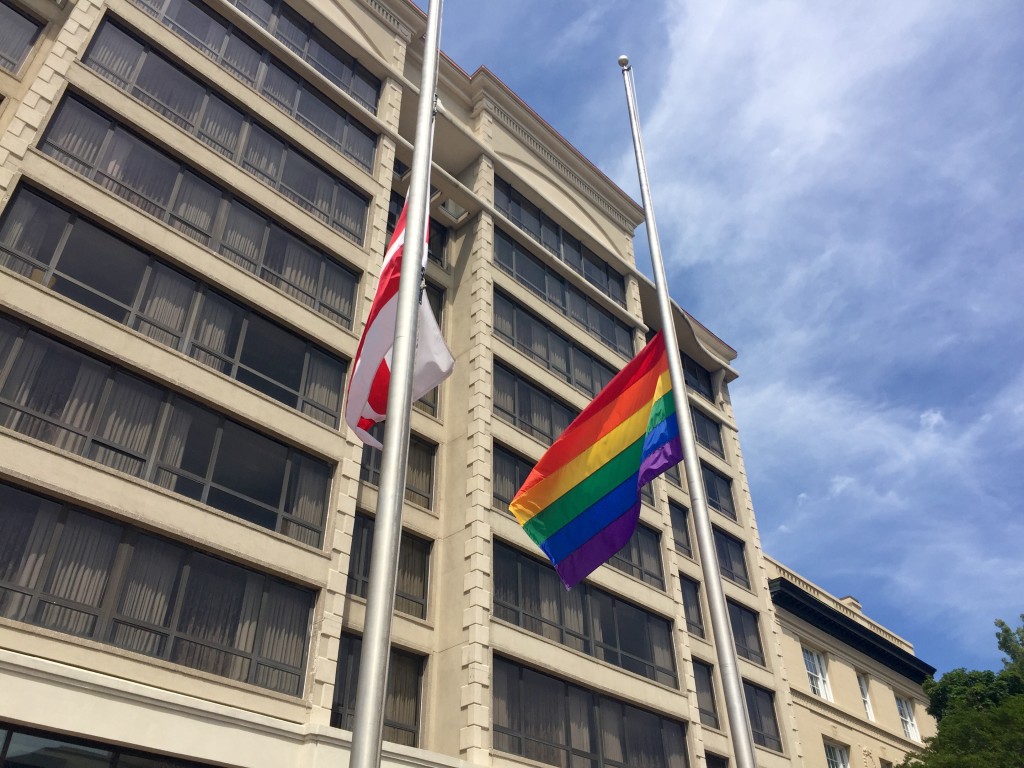Here is an update on places where you can report discriminatory harassment in the USA, since we know there has been an uptick since the Presidential election.
FIRST:
The Southern Poverty Law Center (SPLC) is collecting reports of hateful and harassing acts.
On November 18, they wrote:
“This is the second update from the Southern Poverty Law Center’s effort to collect reports of hateful incidents of harassment around the country. This report covers the full week (Wednesday Nov. 9 to Wednesday Nov. 16) since the presidential election.
The SPLC collected reports from news articles, social media, and direct submissions from the #ReportHate intake page. The SPLC made efforts to verify each report but many included in the count remain anecdotal.
While the total number of incidents has risen, the trend line points to a steady drop-off. Around 65 percent of the incidents collected occurred in the first three days following the election.
SECOND:
“In the wake of the 2016 US elections reports of harassment and hate crimes directed at minority groups of all kinds have been widespread. The purpose of this multi-team effort is to collect and map reports of harassment and hate crimes against [discriminated against] communities. We also seek to collect and map reports of [discriminated against] communities being helped.
Important: This is not an emergency response system. If you are the victim (or an eyewitness) of harassment/attacks, please call 911.
This project is a collaboration between CrisisMappers, Harvard University, MIT and UCLA.
Contact: contact@harassmap.us”



 This is a fact: LGBTQ people experience public harassment – and according to
This is a fact: LGBTQ people experience public harassment – and according to  The shooting at the Orlando gay club over the weekend is horrendous. That Latinx LGBQT-identified people were attacked and killed in a space that was supposed to be safe is disheartening and enraging. We mourn the victims and stand with the survivors and the families affected.
The shooting at the Orlando gay club over the weekend is horrendous. That Latinx LGBQT-identified people were attacked and killed in a space that was supposed to be safe is disheartening and enraging. We mourn the victims and stand with the survivors and the families affected.